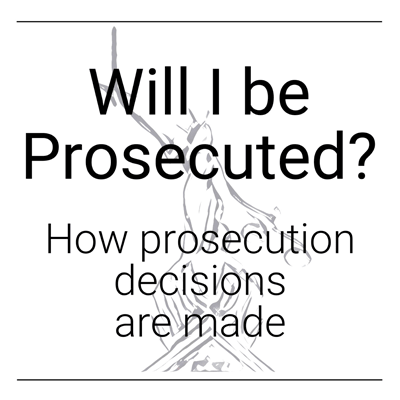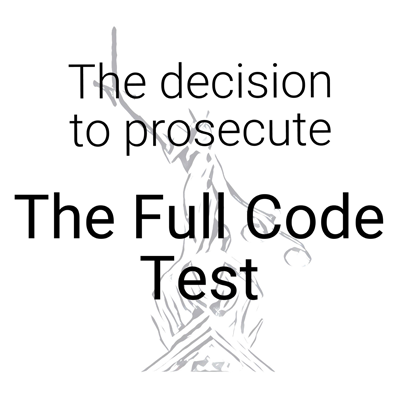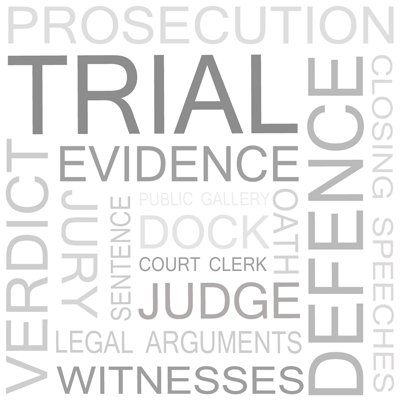How prosecution decisions are made
The Full Code Test, Threshold Test, Reviews and Private Prosecutions
All Contents > How Prosecution Decisions are Made > Out-of-Court Disposals > Which Court will I go to?
“In most circumstances, to bring charges against someone (i.e. to prosecute them) or to offer an alternative to prosecution (an out-of-court disposal such as a caution) the Crown Prosecution Service (CPS) or other public prosecuting authority will have to consider a two-stage test by answering the following questions: 1. Is there sufficient evidence to provide a realistic prospect of conviction? ... 2. Is a prosecution required in the public interest?”
On this page …
Who can bring a prosecution?
The decision to prosecute - the Full Code Test
Realistic prospect of conviction
Public Interest
The decision to prosecute - the Threshold Test
Out-of-Court Disposals
Commencing a Prosecution
Reviewing Decisions to prosecute
Reviewing decisions not to prosecute - CPS Victims' Right to Review Scheme
Private prosecutions
Who can bring a prosecution?
Most prosecutions in England & Wales are carried out by the Crown Prosecution Service (CPS). Some lower level offences, like low value shoplifting, can be commenced by the police without being referred to the CPS (although if the case goes to court they must be reviewed by the CPS before the first hearing at the magistrates’ court takes place).
There are other public authorities who prosecute cases, such as the Department of Work and Pensions, the Environment Agency, the Food Standards Agency, the Gambling Commission, the Health and Safety Executive and the Serious Fraud Office.
When the CPS bring a prosecution they do so on behalf of the Crown so a criminal case against David Smith would often be written down as The King v David Smith. Sometimes the Latin term Rex is used instead of The King, so a criminal case against David Smith would often be written down as Rex v David Smith, or more often abbreviated to R v David Smith.
[Note that when criminal lawyers refer to cases they pronounce the ‘v’ as ‘and’, so ‘R v David Smith’ would be referred to as ‘R and David Smith’.]
Prosecutions can also be brought by private individuals, organisations or companies (who do not act on behalf of the police or any other public prosecuting authority), although private prosecutions are subject to restrictions for some offences and the CPS have the authority to step in and take the case over in certain circumstances. The Post Office is one (notorious) example of an organisation which commenced numerous private prosecutions against Sub-Postmasters, culminating in numerous wrongful convictions being quashed by the Court of Appeal.

















